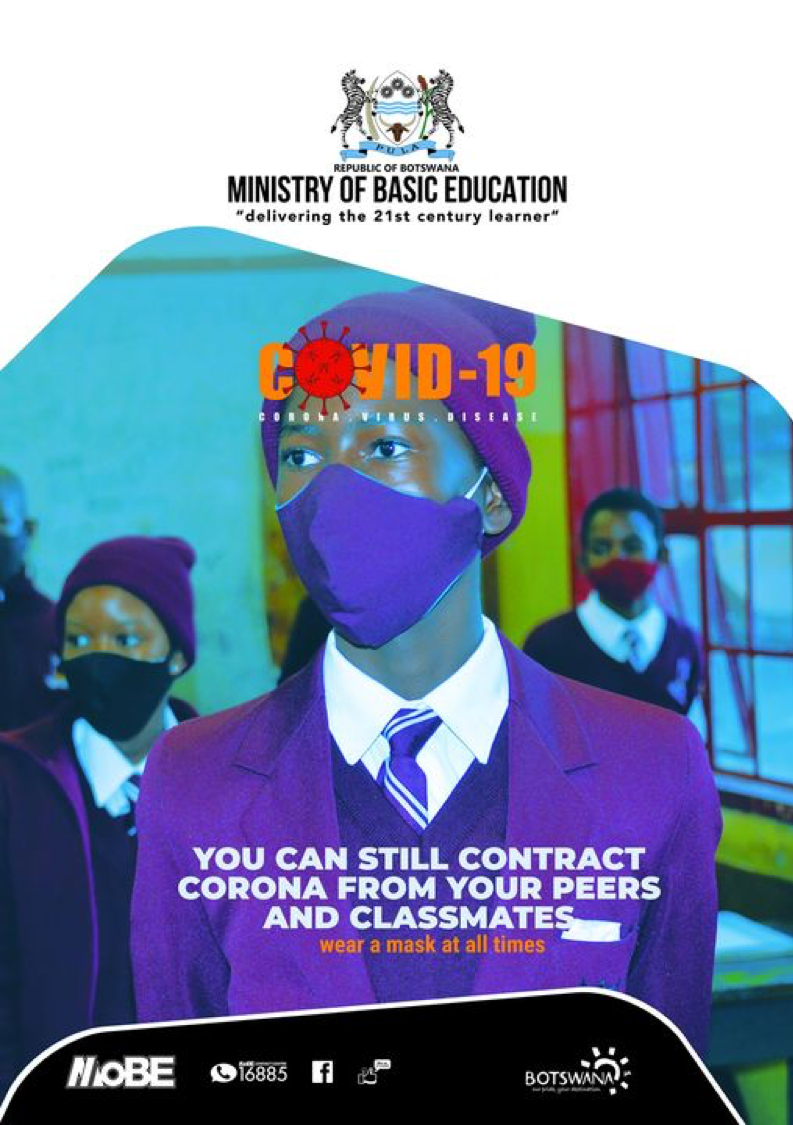Lessons from Botswana on Continuing Learner Engagement During Covid-19
By Kgosi Motshabi
13 October 2020
Learners, teachers, parents, and education authorities in Botswana worry both for their health and for their futures amid the Covid-19 pandemic. When Botswana enacted a six-month State of Emergency and full national lockdown prior to any Covid-19 cases in the country, parents, learners, and teachers found themselves unexpectedly isolated in their homes. During that period there was a spike in gender-based violence and child abuse. The provision of food rations by local authorities to households brought relief but was not as effective as the national schools feeding program, where every child is provided with food every school day of the year.
In addition to these immediate needs for safety and food, long-term questions about learning continuity in view of the school closures have preoccupied learners, parents, teachers, and education authorities. Despite recent focus on expanding the use of ICT in Botswana, the country was not ready for remote learning for all. The ICT infrastructure is limited and technology disparities among learners became evident based on home background and geographic location.
Pedagogically, most teachers had no training or experience with remote teaching and learning. Wide-reaching access to radio and nationalized television—still broadcast with analog transmission—and a nationalized curriculum helped to facilitate lesson delivery. Low-tech interventions using SMS text messages and phone calls also show promise as a way to continue access to learning.
Given low community transmission, schools reopened at the end of May 2020 with upgraded health standards implemented in every school across the country. New wash basins were installed, the schools were disinfected, and ablution facilities—often previously without water—were made to be fully functional. Health authorities inspected and ascertained the preparedness of each school and continue to monitor and ensure that Covid-19 protocols are observed strictly by all parties when schools are in operation. Yet rates of infection have varied within the country, causing school re-closures in some areas and not others.
Given the clear long-term nature of school disruptions due to Covid-19, we must grapple with the question of what to focus on as we seek to minimize the harm to Botswana’s learners. The concept of hysteresis, from labor economics and raised by OECD in connection to education during the pandemic, is helpful in thinking about next steps for education in Botswana. In this case, hysteresis is the long-term effect of school disruptions on learners’ school success, and it is a combination of the intensive margin and the extensive margin. The intensive margin is how much learners learn during the school closures, and the extensive margin is how engaged in education learners continue to be. Higher levels in both factors indicate an optimum level.
Observations reveal that due to the general lack of remote learning facilities, the intensive margin factor was low for a great majority of learners in Botswana during school closures. Meanwhile, learners still have much interest and commitment to their education, which is an indication of a higher extensive margin. Leveraging on the commitment of the learners, education authorities and institutions need to commit to reinventing pedagogy and putting in place remote learning facilities and supports, with adequate provision of professional development for teachers.
Disclaimer: The views, thoughts, and opinions expressed in this publication belong solely to the author(s) and do not necessarily represent those of REACH or the Harvard Graduate School of Education.
About the author:
Kgosi Motshabi has many years of experience in general education, teacher education, advocacy for minority education, and as senior researcher in educational assessment. He holds a Ph.D. in Educational Research and Evaluation from the University of Botswana. His recent work has focused on evaluation of educational programs.
He can be contacted at kgosimotshabi6@gmail.com.

